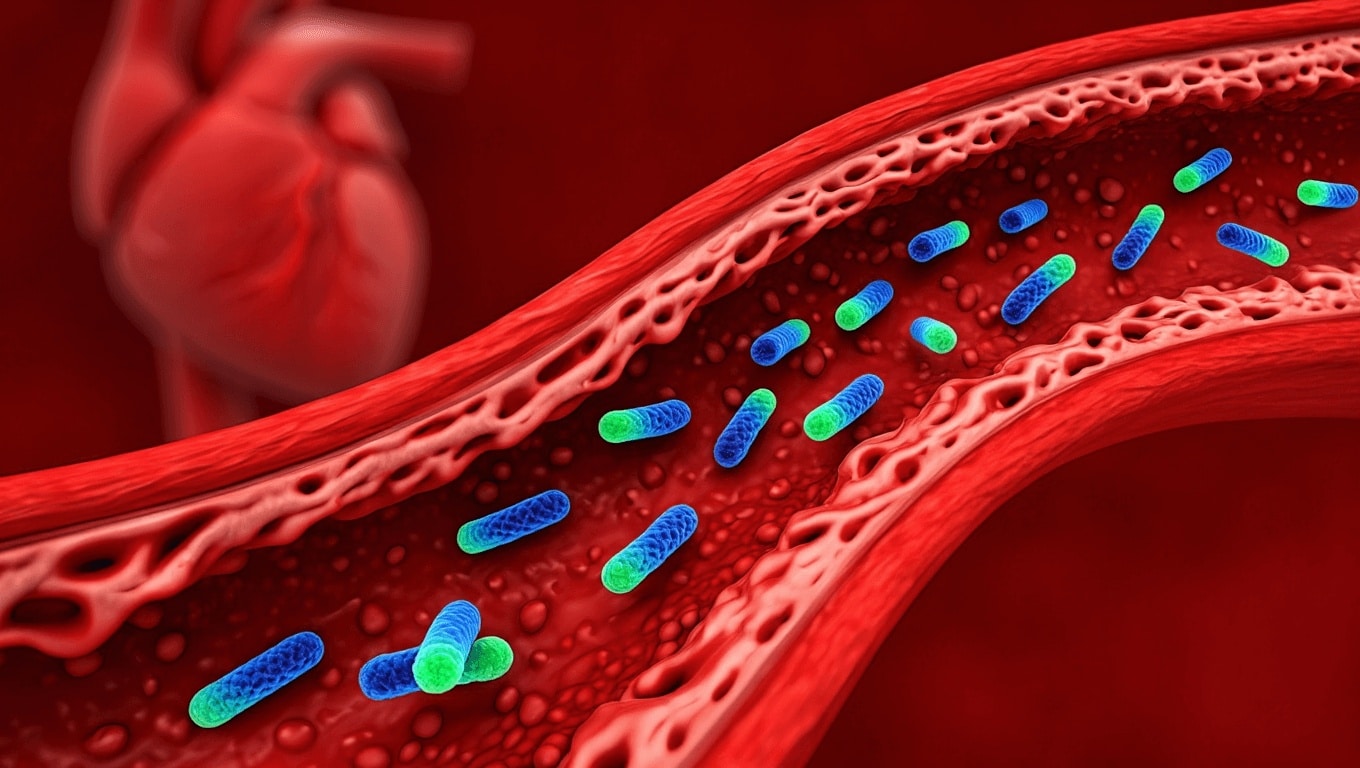In a groundbreaking study, scientists have identified specific gut bacteria linked to coronary artery disease, a major risk factor for heart attacks and sudden death. This discovery sheds new light on the complex interplay between our microbiome and heart health, potentially paving the way for innovative preventive and therapeutic strategies. Published in the journal mSystems, the research was a collaborative effort involving experts in genomics, cardiology, and epidemiology. It highlights significant metabolic pathways and mechanisms through which intestinal microbiota may influence the progression of coronary artery disease.
Exploring the Gut-Heart Connection
Pluto TV’s Hidden Movie Section Rivals Premium Services
Korean Netflix Has 200+ Shows US Version Doesn’t Stream
The relationship between gut bacteria and heart health has long intrigued scientists. Coronary artery disease, which involves the blockage of the arteries that supply blood to the heart, is the leading cause of death globally. The study, spearheaded by Han-Na Kim and Soomin Lee from Sungkyunkwan University in South Korea, aimed to elucidate whether specific bacteria in the gut play a role in this disease.
By examining the bacterial composition in individuals with and without the disease, the researchers sought to uncover differences that could lead to breakthroughs in how we understand, prevent, and treat heart conditions. The analysis involved comparing gut microbiomes from diagnosed patients and healthy controls, ensuring similarities in age, gender, and body mass index for reliable results.
Key Findings in Microbial Differences
Netflix reveals economics behind 3-season cancellations as viewership metrics drop
YouTube Premium Originals Nobody Talks About Are Award-Winning
Using advanced metagenomic sequencing, the study analyzed the DNA of bacteria from stool samples, identifying over 520 distinct bacterial species. Statistical analysis further narrowed these down to 15 species that showed significant differences between the two groups. Notably, patients with coronary artery disease had higher levels of certain bacteria from the Lachnospiraceae family and lower levels of bacteria that produce short-chain fatty acids, which are crucial for maintaining gut integrity and regulating inflammation.
Metabolic Pathways and Inflammation
The research highlighted more active metabolic pathways related to the urea cycle and L-citrulline synthesis in patients with coronary artery disease. These pathways are associated with increased inflammation and metabolic imbalance. Significant bacteria such as Alistipes and Coprococcus played pivotal roles in these metabolic functions, potentially influencing the disease’s progression.
Implications for Heart Disease Prediction and Prevention
The study’s findings not only deepen our understanding of the microbiome’s impact on heart health but also introduce the potential for developing non-invasive predictive models. By integrating microbial and metabolite data, the researchers devised a model that accurately differentiates between healthy individuals and those with the disease. This model could revolutionize how we predict and manage heart health, moving towards more personalized medicine.
Furthermore, the study challenges the conventional notion that all typically “beneficial” bacteria are always good for health. It underscores the complexity of microbial interactions within our bodies and their varied effects on our health.
Continuing Research and Future Directions
While the study offers promising insights, the authors acknowledge the need for further research involving more diverse populations to validate these findings. Additionally, although metagenomic sequencing provides detailed information on bacterial DNA, it does not measure actual bacterial activity within the body. This highlights an ongoing challenge in fully understanding how these findings can be effectively translated into prevention or treatment strategies for coronary artery disease.
As research progresses, the link between the gut microbiome and heart health continues to be a pivotal area of study, potentially leading to breakthroughs in how we approach cardiovascular diseases.

Daniel Harris is a specialist journalist focused on the crossroads of breaking news, extraordinary history, and enduring legends. With a background in historical research and storytelling, he blends timely reporting with timeless narratives, making complex events and ancient myths resonate with today’s readers. Daniel’s work often uncovers surprising links between present-day headlines and legendary tales, offering unique perspectives that captivate diverse audiences. Beyond reporting, he is passionate about preserving oral traditions and exploring how extraordinary stories continue to shape culture and identity.

